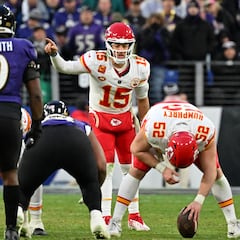How much was a ticket to the first ever Super Bowl?
The Allegiant Stadium in Las Vegas is gearing up to host Super Bowl LVIII and tickets are not cheap. But how do the prices compare with 1967?


We’re pretty much all set for Super Bowl LVIII on Sunday 11 February, the 58th edition of this famous sporting event, and some lucky fans will get to watch it all unfold at the Allegiant Stadium in Las Vegas, Nevada. For that pleasure, though, they’ll have likely had to dig deep to pay for a ticket.
“I’d give up my wife for a Super Bowl ticket” 😂
— FOX Sports: NFL (@NFLonFOX) January 28, 2024
We asked @Lions fans what they’d give up for a Lions Super Bowl and their answers were priceless 🤣 pic.twitter.com/W2Ru1ECS0d
Super Bowl 1967-2024: how ticket prices have changed
It’s the Kansas City Chiefs who will be classed as the home team and will play “host” to the San Francisco 49ers in a repeat of the 2020 final, and a full house is expected. Around 70,000 supporters will be there but what prices have they been paying for entry. Tickets prices this year are among the most expensive in NFL history, and purses have been stretched for those unique barcodes. Both the demand and prices for tickets to the Chiefs vs Eagles game are rising as the big date draws near.
From what we’ve seen across ticketing websites, the basic cost for a ticket to Super Bowl LVIII is over $8,000, not including the steep fees that ticketing companies slap on to the original price. For the most expensive ones you will be looking at well over $40,000. It’s crazy stuff! And then there’s even more oppulent options as Joe Pompliano explains.
This luxury suite at Allegiant Stadium is currently listed at $2.5 million for the Super Bowl.
— Joe Pompliano (@JoePompliano) February 2, 2024
• 20 tickets
• 2 parking passes
• Food & beverage included
That's $125,000 per person.
(h/t Suite Experience Group) pic.twitter.com/Hn1nbTB2Gy
First Super Bowl tickets cost just $12
Related stories

Snap and the Mahomes leg lift
As these figures are being bandied about, one question that we’ve been asked is regarding the entry cost for the very first Super Bowl in 1967. After dusting off the AS history books we saw that an average ticket back then cost its holder $12. In today’s money that’s equivalent to around $100. Talk about inflation!
In case you wondered, the main image above is a Super Bowl I ring to commemorate the occasion, when the Green Bay Packers ran out 35-10 victors over the Kansas City Chiefs.

